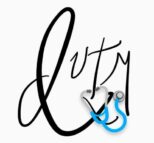You don’t realize that your own daily challenges might have deeper roots until they started affecting not only my mental health but your relationships, work, and even basic tasks. do you know you might had a personality disorder?
I remember reading about personality disorders in my psychiatry study one day out of curiosity. At first, I brushed it off, thinking, “That’s too extreme; I just get overly emotional or stressed.” But the more I read, the more I saw parts of myself reflected in those descriptions. It wasn’t a comfortable realization. It was like looking in a mirror that showed all the things I tried to brush under the rug.

Recognizing Red Flags in Everyday Life
Some behaviors that seemed “normal” to me started feeling like warning signs. For instance, intense mood swings that went beyond the typical ups and downs, overwhelming fears of rejection, and persistent feelings of emptiness. I always thought that being sensitive was just part of who I was—but this was different. Sometimes, I’d feel so disconnected from people around me, even those I was close to, that it made me feel entirely alone, even in a room full of friends. It wasn’t simply feeling sad or moody; it was as if my emotions controlled me.
The Impact on Relationships
Relationships were another big clue. Friends and family would sometimes say that I seemed “too intense” or that I was “all-in or all-out.” For me, it felt normal to have such strong attachments, but looking back, I could see how my reactions could feel overwhelming for others. Sometimes, a small misunderstanding would send me into a lose emotional control, collapse, feeling rejected and ready to cut ties altogether. It wasn’t until I realized that my relationships had a repetitive, destructive pattern that I began to question if this was more than just being “passionate” or “emotional.”
Seeking Help and Getting Diagnosed
Eventually, the constant roller-coaster of emotions and the toll on my relationships led me to seek professional help. I was nervous about opening up because I didn’t want to be judged. I thought, “What if they just think I’m dramatic?” But I found that talking to someone who understood these issues actually made me feel less alone.
After a few sessions, my therapist suggested we look into some diagnostic criteria for different personality disorders. At first, it felt surreal, but as we went through the list, a lot of things started to click. When I finally received a diagnosis, it was like a puzzle piece snapping into place. It wasn’t that I was “too sensitive” or “overly emotional”—I was dealing with patterns deeply rooted in my personality, shaped over years.

Embracing Growth and Finding Support
Understanding that I had a personality disorder was a huge step toward self-acceptance and growth. Instead of feeling lost in my emotions, I learned to see them as part of something bigger. With therapy, I started to develop skills to manage my reactions, communicate better with loved ones, and set healthier boundaries.
One of the best parts of this journey has been connecting with others who understand. Through support groups and therapy , I’ve realized that there are so many people out there navigating similar paths. It’s helped me see that having a personality disorder doesn’t define me; it’s just one part of my story.
summery
If you’ve ever wondered about your own behaviors or struggled to understand certain patterns in your life, I encourage you to look into it. Self-discovery is often uncomfortable but also empowering. Getting diagnosed was just the beginning for me, and with help, I’ve been able to work toward a healthier, happier life. If you’re on a similar path, know that you’re not alone—help and support are out there, and it can make all the difference.
team of doxaab is really been helpful to me tough time thanks to dr.uttam for understand me without judgement and listening me with so much empathy
